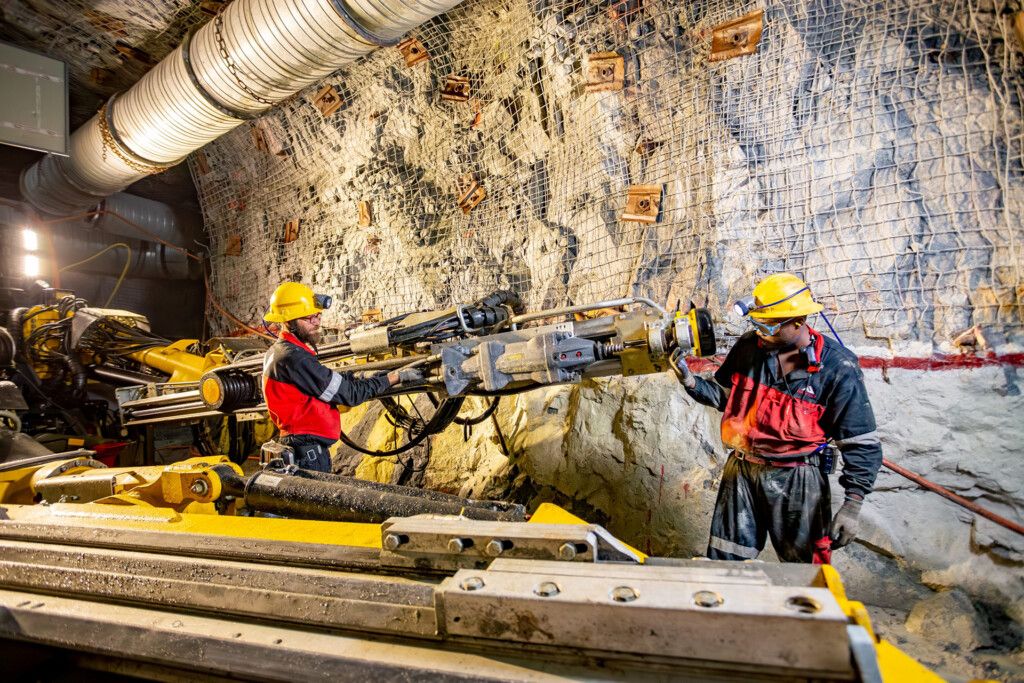South African mining operations are typically located in rural areas far from the bustle of city life and most modern-day conveniences. The local communities that develop around such mining operations are characterised by high unemployment and poverty, with the local populace generally reliant on the mining company for any form of employment, either through direct employment or indirectly through support services.
When granting mining licences, it has long been a requirement of the South African government that the mining company make every effort to recruit from the local community and to make use of local service providers wherever possible. Such requirements have become more important as the government pays more attention to the local procurement policies put in place by mining companies.
Ivanhoe’s Platreef project, near Mokopane in Limpopo province, is projected to become one of the world’s largest and lowest-cost producers of palladium, platinum, rhodium, nickel, copper and gold. RLB is providing quantity surveying and contract management services to Ivanhoe for this project, with a team located on-site in Mokopane supported by a team based in Johannesburg.
Through our relationship with Ivanhoe, RLB has specifically been requested to develop and implement a comprehensive training programme tailored to suit local contractors based in Mokopane and surrounding areas. The objective of this training programme is to enhance the understanding and performance of contractors regarding the formal tendering process and to equip them with the necessary knowledge and skills to effectively participate in procurement activities.
By focusing on these objectives, the training aims to empower contractors to participate more effectively in tender opportunities, ultimately contributing to their professional development and the success of their businesses.
These training sessions are intended to prepare contractors to manage the procurement process effectively and efficiently, providing them with a practical understanding of how to plan for and conduct procurement for goods and services. The aim is not to provide an academic treatment or a compliance course, but rather a workshop-style learning opportunity for contractors to develop or enhance procurement skills directly applicable to their work.
The training accommodates small groups and is spread out over a sufficient period to allow contractors to absorb and reflect on the materials between sessions, gradually applying the learning to their work. An amalgamation of theory and practice is employed throughout the training.
In South Africa, the tendering process plays a crucial role in procuring goods and services across various sectors, including government, private enterprise and non-profit organisations. Governed by legislation, regulations and policies, it aims to promote fairness, transparency and accountability in procurement. Designed to ensure efficiency and economic empowerment, adherence to legal and regulatory requirements, along with best practices, is essential for successful tendering processes.
Effective tendering practices are crucial for local contractors due to:
Effective tendering increases the chances of winning contracts and accessing business opportunities. By submitting competitive bids, local contractors can secure projects that contribute to their growth and sustainability.
Strong tendering capabilities give local contractors a competitive edge in the marketplace. They can differentiate themselves from competitors by showcasing their expertise, reliability and ability to deliver value for money.
Engaging in the tendering process provides valuable learning opportunities for local contractors. It helps them develop their skills in project management, procurement, contract negotiation and compliance, thus enhancing their overall capabilities.
Tendering exposes local contractors to a network of potential clients, partners and collaborators. Building relationships with stakeholders in the industry can lead to future business opportunities, partnerships and collaborations.
Craig Hall
Mining and Engineering Construction Consultant,
RLB Africa
craig.hall@af.rlb.com

